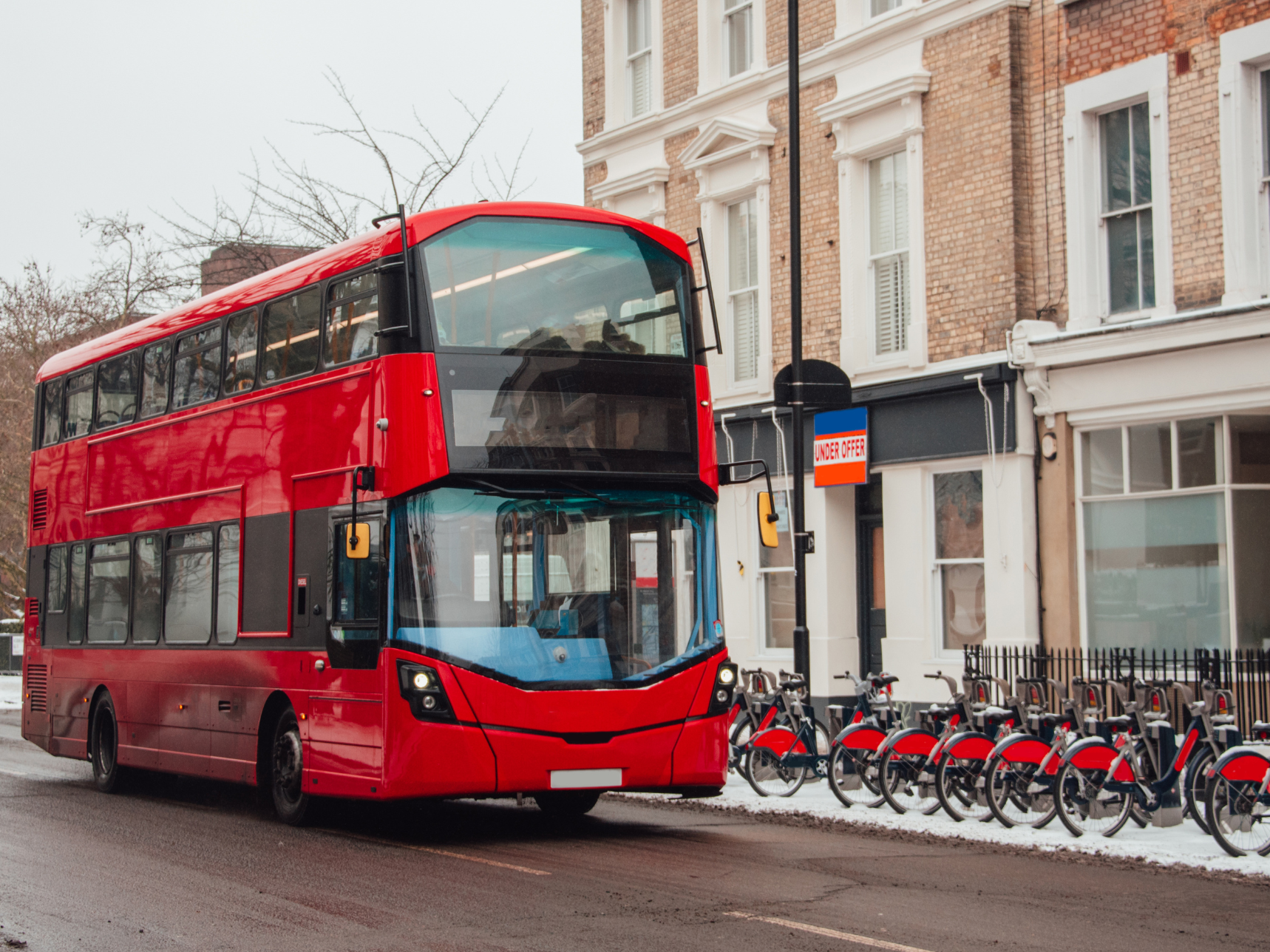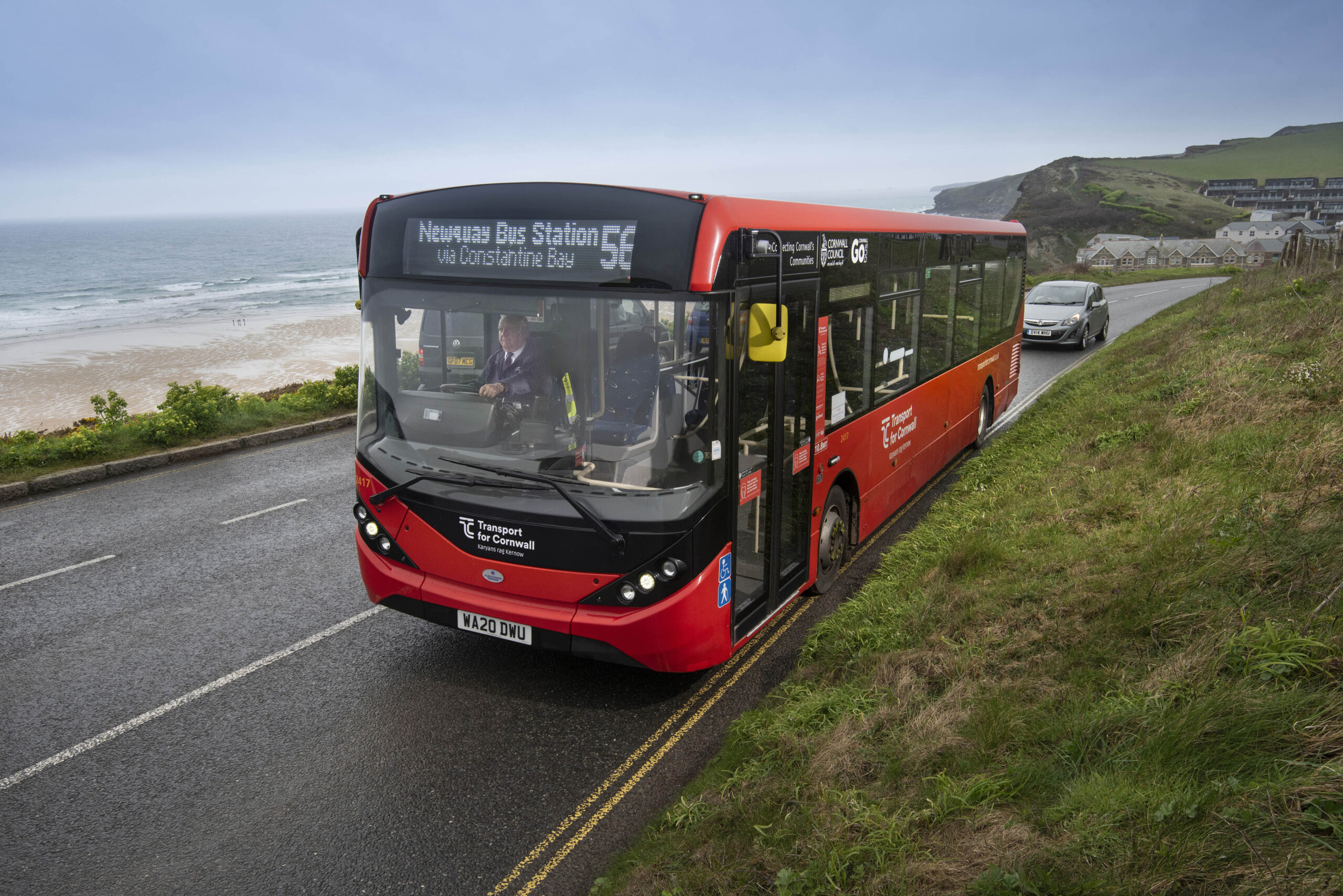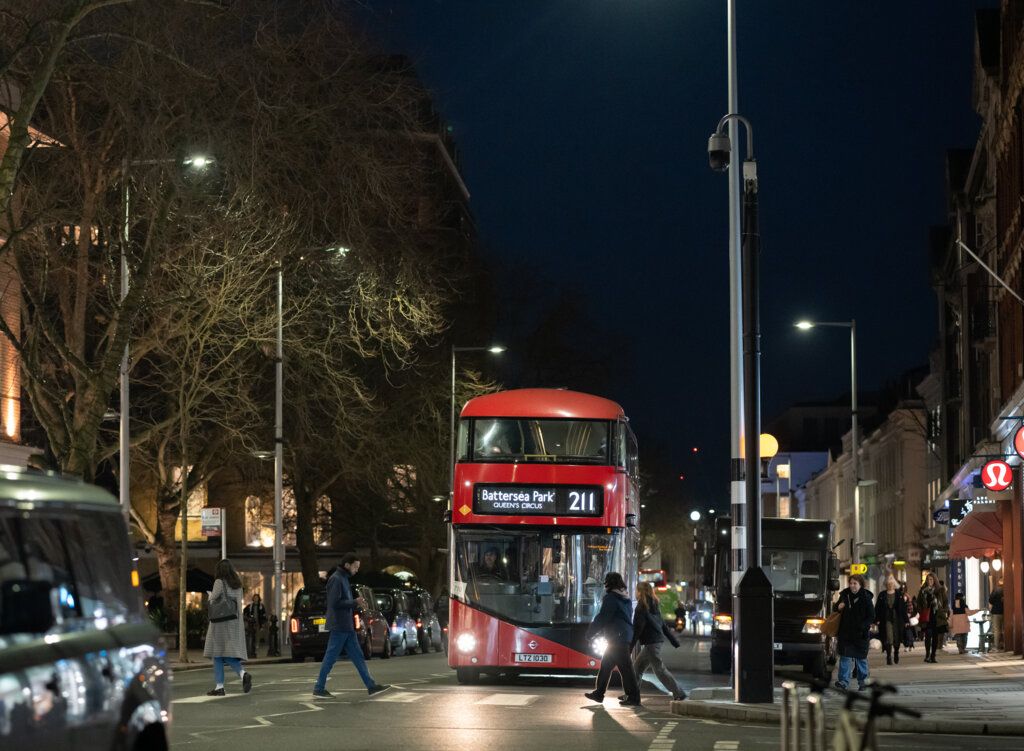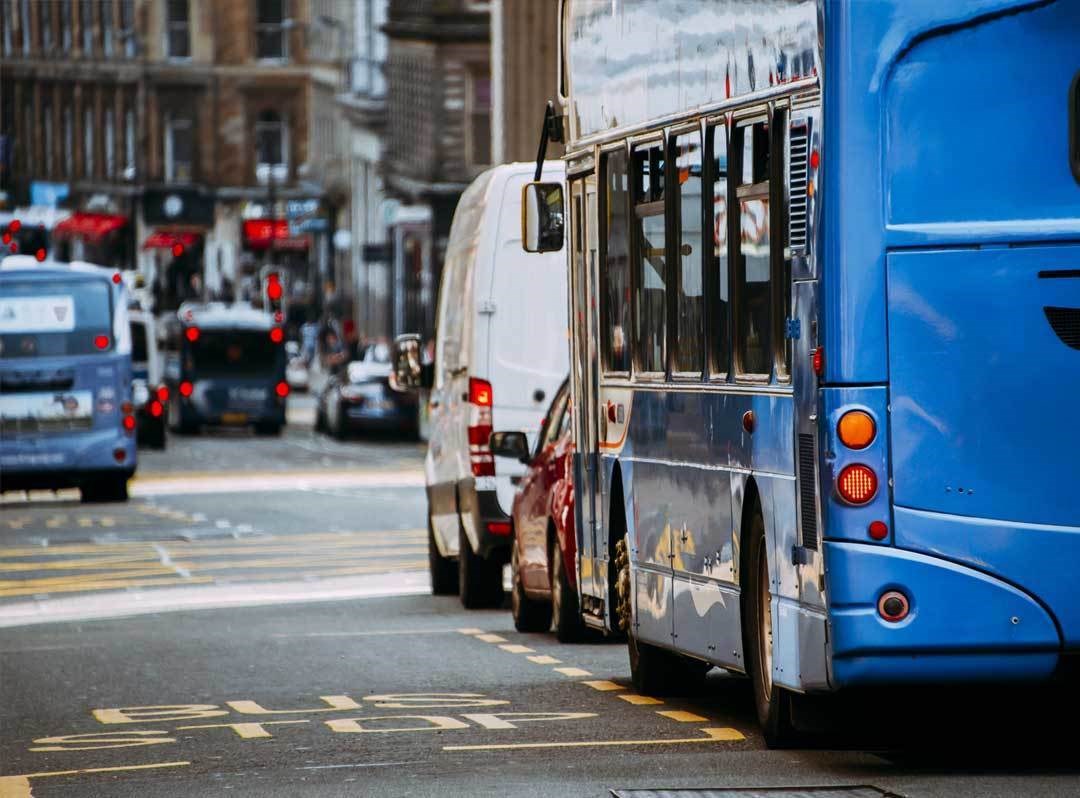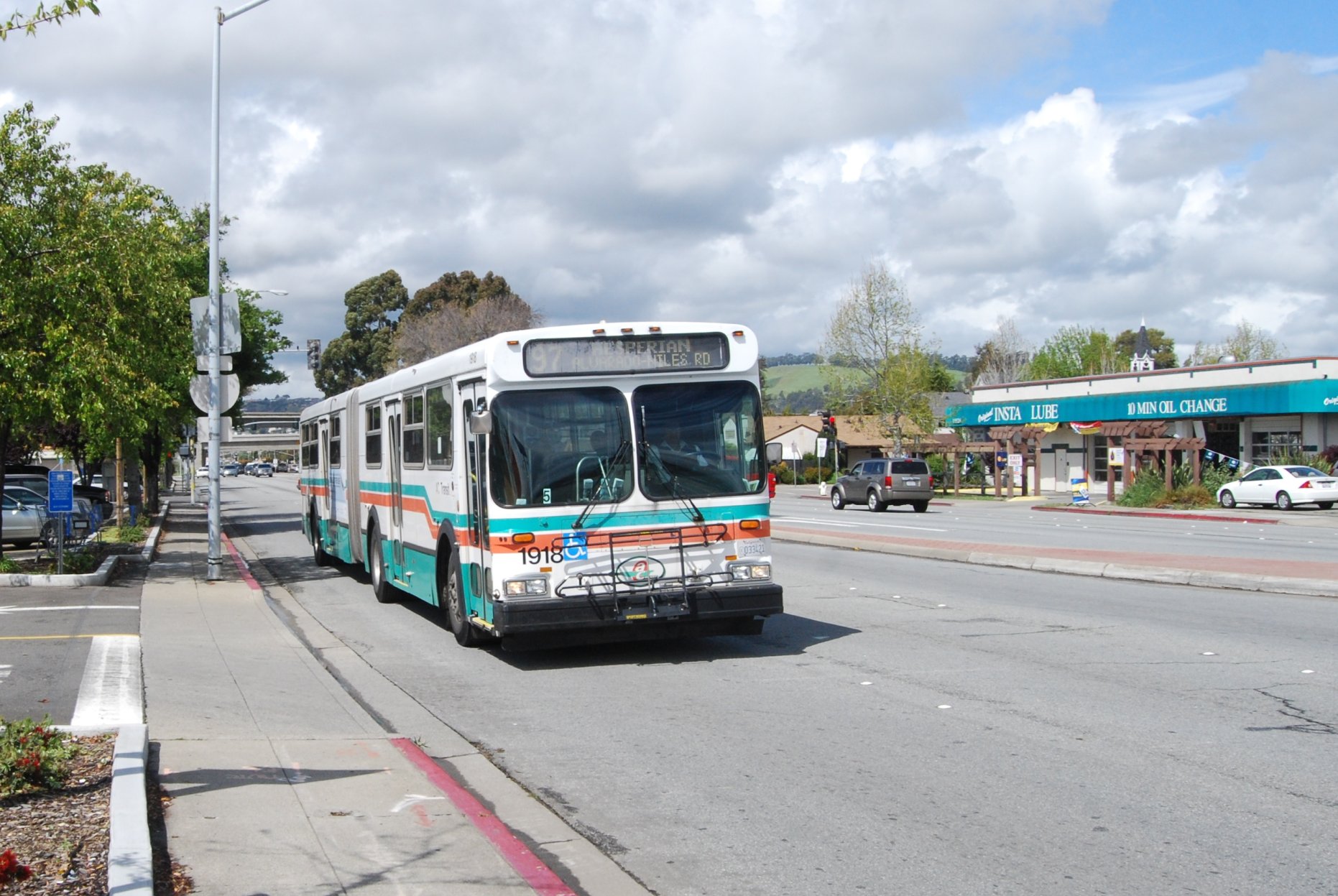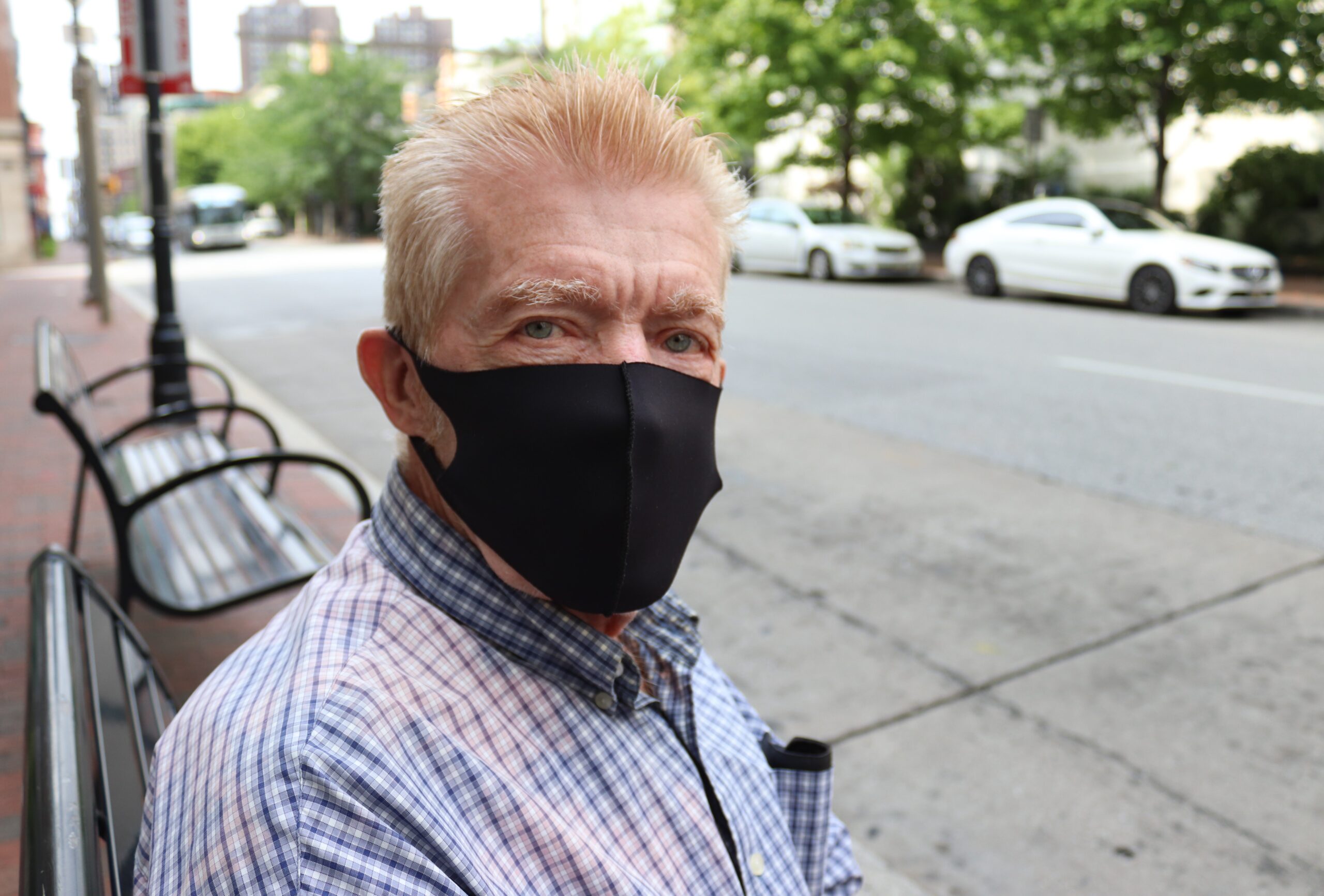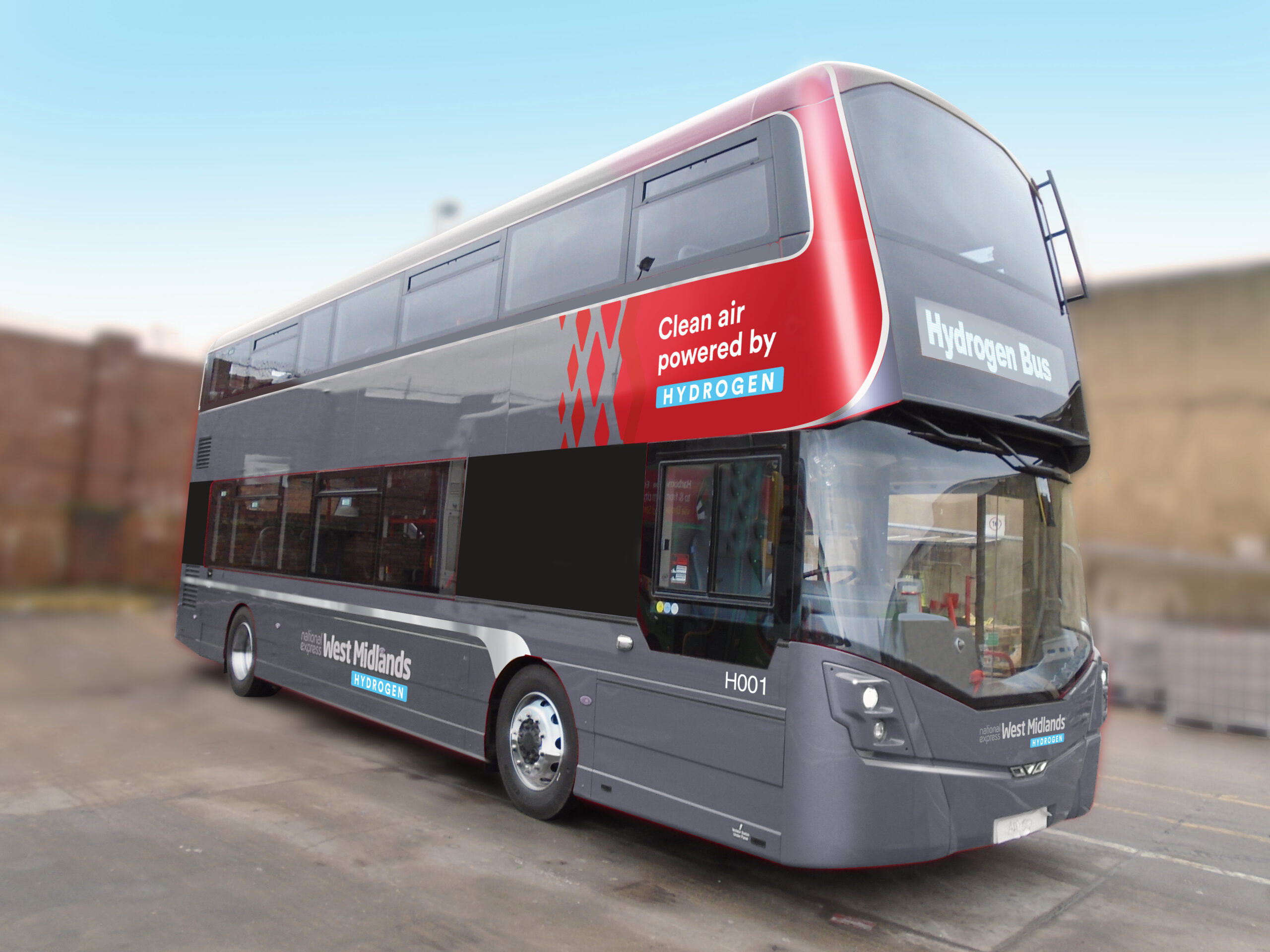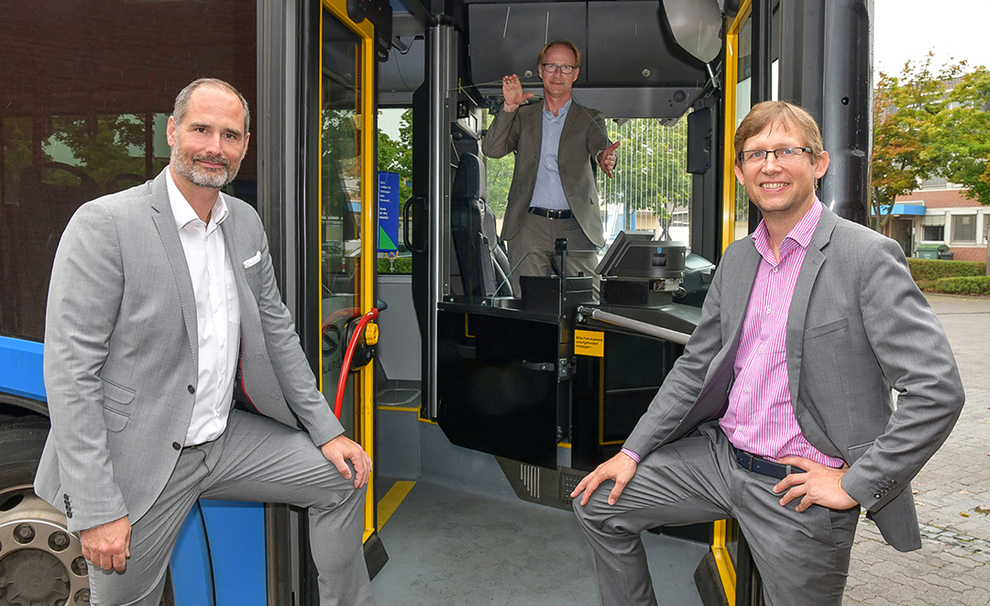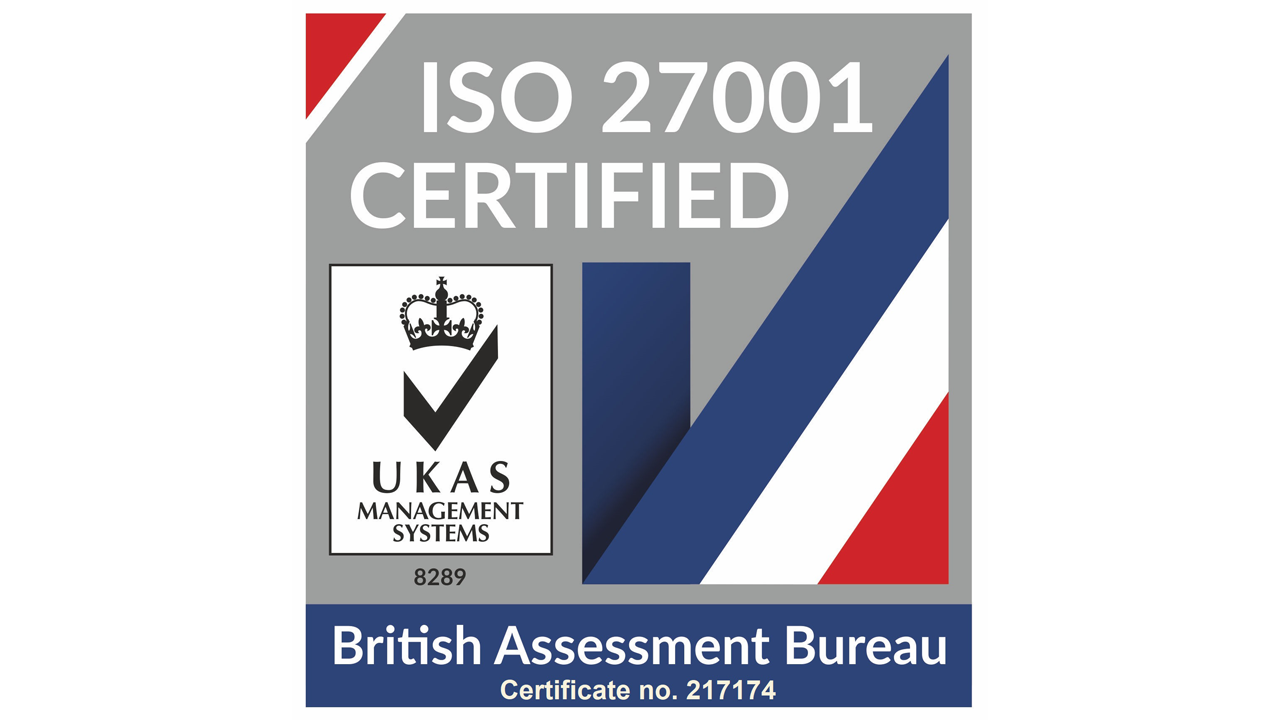Greater Manchester Reaches Next Step in Bus Reform Journey as It Prepares to Consult on COVID Impact
Greater Manchester is preparing to hold a further consultation on its proposals to reform the bus market following work to understand the potential impact of COVID-19.
At a meeting on Friday 27 November, Greater Manchester Combined Authority (GMCA) will be asked to give the go-ahead to a consultation on the potential impacts of COVID-19 on both Greater Manchester’s bus market and its proposed franchising scheme.
This follows an earlier consultation, held between October 2019 and January 2020, on the introduction of the proposed franchising scheme. A final decision on the scheme was planned for spring 2020, but this was delayed due to the impact of COVID-19.
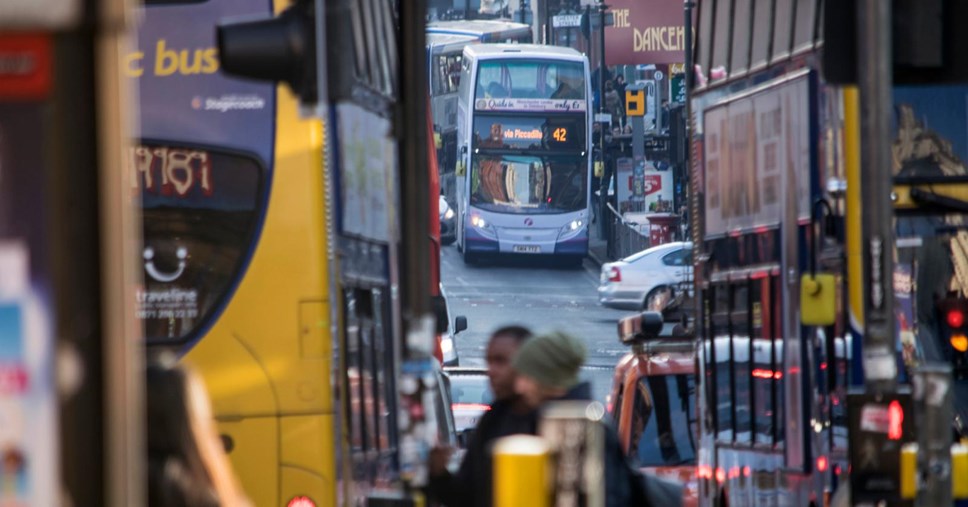
Reform of the bus market is a key part of ‘Our Network’, Greater Manchester’s ten-year plan for a world-class, integrated public transport network, that makes getting around the city-region easy, accessible and affordable. Our Network is part of the Transport Strategy 2040, the city-region’s long-term plan for transport with the right connections in the right places, simple ticketing across different types of transport and the potential to transform Greater Manchester, by enabling people to move around quickly and easily.
Buses are a vital part of Greater Manchester’s public transport system and throughout the COVID-19 pandemic they have become even more essential. 75% of public transport journeys made in Greater Manchester, both before and during the pandemic, are by bus and they continue to be a critical link to jobs and essential services.
Currently in Greater Manchester the bus companies decide the routes, frequencies, fares and standards. There is no coordination and limited oversight. Where bus companies decide not to run services, where necessary the public sector pays to fill in the gaps.
Under franchising, bus services would be brought under local control. GMCA would coordinate the bus network based on the services passengers need and would also coordinate investment in the bus market. The bus operators would be contracted by GMCA to run the services.
Over 8,500 individuals and organisations from across Greater Manchester and beyond responded to the previous consultation, with eight-out-of-ten respondents, who answered the relevant question, supporting the proposed franchising scheme.
In June, GMCA noted the results of the consultation and asked that, before a final decision was made, Transport for Greater Manchester produce a COVID-19 Impact Report considering how the pandemic had affected the bus reform process.
Before COVID-19, bus usage was already falling in Greater Manchester, which was one of the reasons why GMCA was considering the proposed franchising scheme.
The pandemic has had a significant impact on bus usage with passenger levels dropping by around 50%. However, bus patronage did recover more quickly than other modes of transport during the pandemic, demonstrating how vital bus services are to those who rely on buses to access work, especially the 30% of households who do not have a car.
If bus usage remains low and nothing is done to reform the bus market, services may be further reduced, which may mean the public sector will need to provide more funding to keep essential services running, especially for Greater Manchester’s poorest and most vulnerable who depend on the bus network. This would mean the public sector paying more proportionally towards the bus network whilst still having no control and limited oversight.
Fewer bus services could also lead to more people driving, increasing congestion and pollution and hampering economic growth.
The COVID Impact Report carried out by TFGM, confirmed that despite the impact of COVID-19, GMCA would still be best placed to plan and coordinate the city-region’s bus network to meet passengers’ needs and the proposed franchising scheme is still the best way to achieve Greater Manchester’s long-term ambition for an integrated public transport network.
Under franchising, bus services would be brought under local control and GMCA would coordinate the bus network based on the services passengers need and would also coordinate investment in the bus market.
However, the proposed franchising scheme would mean more of the financial responsibility and risk would belong to GMCA and the public sector. The potential longer-term impact of COVID-19 on bus usage may also mean GMCA is faced with difficult choices about the network to manage this financial risk and this may impact on the revenue GMCA would receive under franchising.
Overall, the Report found that the proposed franchising scheme would still be affordable and still represent value for money. If approved by GMCA, the consultation will be on the conclusions of the COVID-19 Impact Report and whether the proposed franchising scheme should change. It would take place between Wednesday 2 December 2020 and Friday 29 January 2021.
Deputy Mayor, Sir Richard Leese, said:Throughout this pandemic, buses have proven themselves to be a critical lifeline for people who have needed to get to work, to help other people or to access essential services. But before COVID-19, bus usage was already falling in Greater Manchester, and the pandemic has caused passenger levels to drop even further.
If bus usage remains low and nothing is done to reform the market, services may be further reduced, which may mean the public sector will have to provide more funding to keep essential services running, especially for Greater Manchester’s poorest and most vulnerable who depend on them – but we currently have no control and limited oversight over any changes to services. That is why, now more than ever, we need our buses to work for the people of Greater Manchester.
The evidence suggests that the proposed franchising scheme is still the best way to achieve this and to deliver a joined-up public transport network with simple fares and ticketing and the improved customer experience that Greater Manchester’s passengers deserve. And it needs to proceed now so it can be an important part of our recovery from the pandemic.
We want to ensure everyone in the city-region and beyond has a chance to have their say on how COVID-19 has affected our proposals, so next week GMCA will decide whether to proceed with a further consultation.
Following the consultation the responses will be independently analysed and reported to GMCA, who will consider the responses alongside the outcome of the previous consultation.
The outcome of both consultations would then be considered as part of the final decision by the Mayor of Greater Manchester, Andy Burnham, on whether to implement the proposed franchising scheme. The decision is anticipated to take place in spring 2021.
If a franchised bus network was introduced, it would take place in several phases. Greater Manchester would coordinate the bus network and contract bus companies to run the services, with any profit being reinvested in the buses. This would enable the city-region to develop a more integrated, multimodal public transport network that can meet the demands of both passengers and the city-region’s economy.
This article was originally published by Transport for Greater Manchester.











